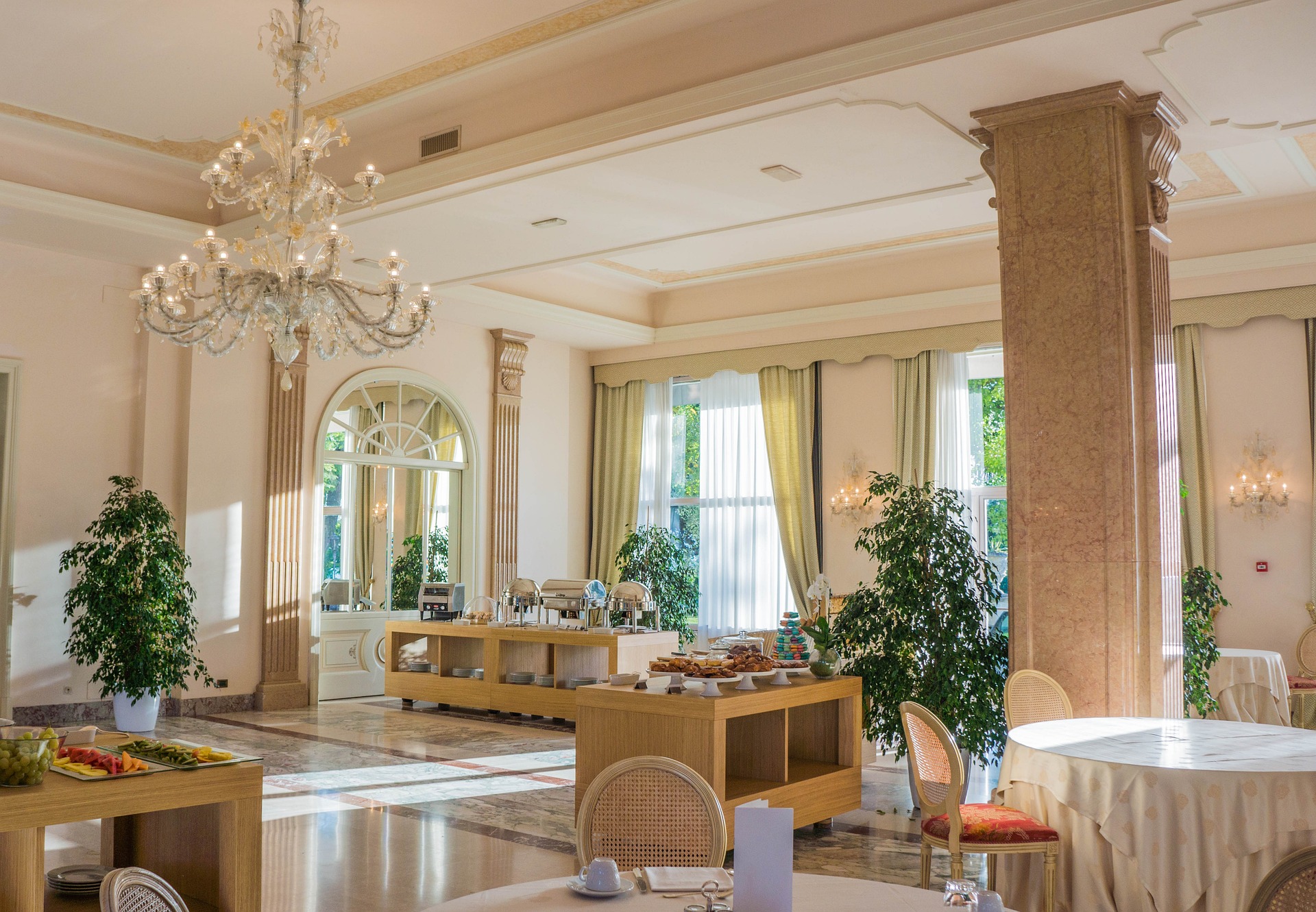Tell someone in the sector your hot new tip is luxury growth and you’ll lose your conversation companion and run the risk of derision from the rest of the market for good. Maybe think about retraining in pharmaceuticals.
Luxury is the hotel industry’s growth story. Everyone is getting into it, even at the traditionally lower end of the market, where even companies such as Choice Hotels International have been doing deals to bolster their standing outside economy; witness its Radisson deal and current attempts to acquire Wyndham Hotels & Resorts.
The established players grow and grow. In 2023, Marriott International signed a record 58 deals for luxury hotels and resorts, bringing its luxury portfolio in the global development pipeline to 245 hotels, including more than 20 hotels expected to open in 2024.
“Luxury is a big part of the appeal of the Bonvoy program, and a big driver of engagement with Bonvoy,” president & CEO Tony Capuano told Skift last year, discussing the group’s loyalty program – the core of its business – on the occasion of the launch of the Evirma, the Ritz-Carlton yacht. It doesn’t get more luxury than that.
At Accor, luxury and premium offerings represent close to 40% of future openings, which is of particular interest when you consider that the group is expected to spin off either its economy or luxury businesses this year. The higher-end part of the company would surely make a good fit with a group such as Hyatt.
 And on it grows. Euromonitor has estimated that the global luxury hotel market is now worth €64bn but will reach closer to €94bn within four years. They have proven themselves resilient, bouncing back after the pandemic to produce profit at almost the same rate as 2019 by May 2022, according to Hotstats.
And on it grows. Euromonitor has estimated that the global luxury hotel market is now worth €64bn but will reach closer to €94bn within four years. They have proven themselves resilient, bouncing back after the pandemic to produce profit at almost the same rate as 2019 by May 2022, according to Hotstats.
There are no issues filling the ever-growing number of hotels, and what is appealing to guests is just as appealing to investors.
All of this is wonderful news for the sector, for purveyors of marble, and for the editors of glossy travel supplements, but how do you compete in a sector where luxury has become an arms race? Catering to the most demanding of all guests, where tastes are constantly evolving.
The biggest change in the market has been the focus on experiences, where guests want to enjoy something out of the ordinary, the emotional touch, something they couldn’t enjoy anywhere else; but this is still delivered on a backdrop of a spectacular property.
Just because there is plenty of money coming into a property does not mean that the bottom line is under any less pressure. Luxury hotels have significantly more moving parts than an economy hotel with self-checkin and require a specialist asset manager, particularly in high-stress areas such as F&B.
The luxury product is not something that can be learned from reading a brand book. For an asset manager to truly understand how a property works, they must have real-world experience of luxury hotels around the world. Luxury means something different in the US than in the Middle East and is delivered in very different ways. Luxury owners are also a unique group, requiring the same personalised attention as the guest, as well as proof of a depth of luxury knowledge, allowing them to trust you with their precious hotel.
The luxury experience is often an emotional one for the guest. That strength of connection is the same for the owner.
Where on-the-ground support becomes particularly relevant is when the hotel is seeking to stand out in what is an ever-rising tide of luxury hotels. Guests want to feel that their experiences are unique. They may be part of a loyalty program, but they are not interested in a cookie-cutter experience.
Delivering differences within a brand will keep it fresh. The same menu does not work in every location, and your team must be motivated to deliver something bespoke to the surroundings, a call that will only increase as sustainability becomes standard.
The team must also be embedded in the local community and able to suggest those experiences which are unique to the surrounding area.
Flexible spaces are also key, as the luxury market continues to attract new guests and as travel patterns change. Your space should be able to adapt to offer work areas, but, in some cases, to change layout to offer group and family travel. People want to share their luxury experiences with friends and family, and this means creating a welcoming and adaptable destination.
Your luxury hotel may have started life as one of a select group, but as demand continues to flourish, it runs the risk of being lost in the crowd, both within its competitor set and within its brand stability. Your asset manager’s most important job is to ensure that it remains in everyone’s focus.
Post
Portugal Hotel Market Outlook 2024
PORTUGAL’S HOSPITALITY INDUSTRY is experiencing an impressive comeback post…
Post
Know thyself for budget success
“Before you can budget for the year ahead, it is critical that you assess the…
Post
Should hotels refuse to join a club which would have them?
The current battleground for the big hotel chains is not pipelines, but loyalty…
Post
The digital concierge: how can hotels use technology to maximise revenue and customer experience?
More than half of all business trips are now a mix business and leisure – so…
Post
Spanish Hotel Market 2024
SPAIN’S TOURISM SECTOR in 2023 exceeded all initial expectations and surpassed…
Post
The luxury sustainability conundrum
Climate change is one of the most significant challenges society is facing, but…
Post
Failing the AI tech race
Attend any conference over the past decade, and a common theme is the devilish…
Post
From compound stays to compound interest
Back in the days of yore - or, for those who measure time this way -…
Post
Projecting into an AI future
The world of hospitality has seen remarkable changes over the past few decades,…
Post
Bringing strength to soft brands
‘Another day, another brand’ could well be the catchphrase of our sector, but…
Post
The need for CAPEX and creating returns
As an asset manager, it’s my job to create and manage the relationship between…
Post
Budgeting for change pt.2
In the second of our series on the budget approval process, we are looking at…
Post
Budgeting for change pt.1
Each season brings with it change and, depending on the time of year, the…
Post
F&B to fill your balance sheet
F&B is usually the second-highest profit driver in the hotel after the…

